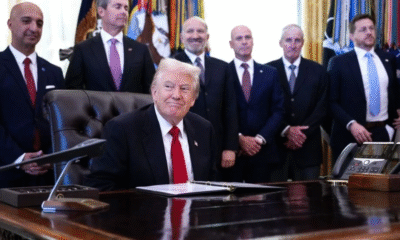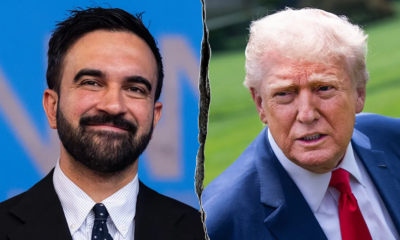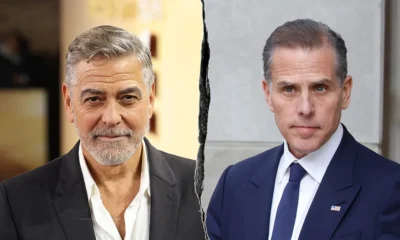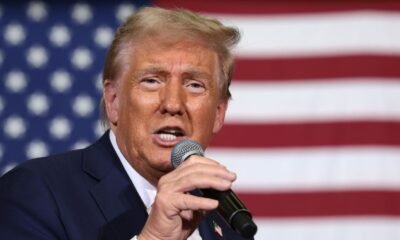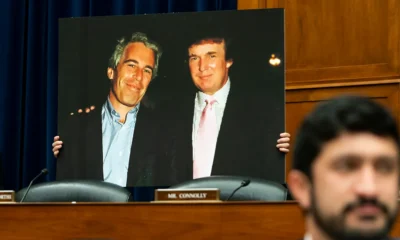Politics
Elon Musk Quits Trump Administration After Rift Over Spending Bill
Tesla CEO and tech billionaire steps down from role as head of DOGE, criticizes Trump’s “massive” tax bill, and vows to scale back political involvement.
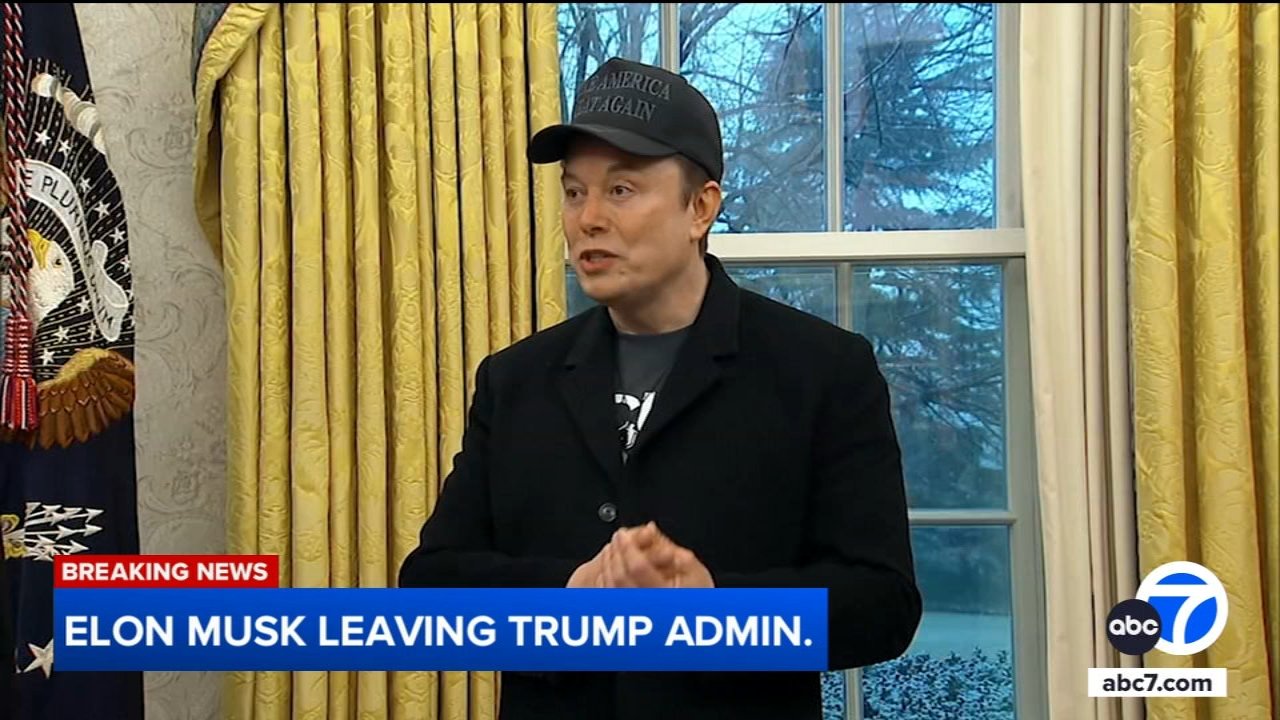
In a move both expected and symbolic, Elon Musk has officially announced his departure from the Trump administration, ending his controversial 130-day stint as a Special Government Employee leading the Department of Government Efficiency, or DOGE. The Tesla and SpaceX CEO took to X, formerly Twitter, on Wednesday evening to confirm the news, stating, “The DOGE mission will only strengthen over time as it becomes a way of life throughout the government.”
Musk’s resignation comes just a day after he publicly criticized what President Donald Trump has labeled his “big beautiful bill” — a sweeping piece of legislation that includes major tax breaks, increased spending on immigration enforcement, and significant government expenditure. Musk called the bill “massive” and warned that it undermines the very work DOGE was created to accomplish.
“I think a bill can be big or it can be beautiful,” Musk told CBS, “but I don’t know if it can be both.” The billionaire expressed his disappointment with the bill’s financial implications, which he says balloon the federal deficit and contradict his mission to cut waste.
Initially appointed with a mandate to slash $1 trillion from federal spending, Musk ultimately fell far short of that goal, citing a deeply entrenched bureaucracy and fierce political resistance. According to a Reuters review, DOGE did manage to reduce the federal civilian workforce by approximately 260,000 — around 12% — largely through buyouts, forced retirements, and agency downsizing.
Yet Musk’s departure was not coordinated directly with the president. According to sources familiar with the situation, the decision was made at a senior staff level, and Musk left without a formal conversation with Trump. His exit reflects a growing disillusionment with Washington. “The federal bureaucracy situation is much worse than I realized,” he told The Washington Post. “It’s an uphill battle trying to improve things in D.C., to say the least.”
Throughout his time in government, Musk clashed with key administration figures, including trade adviser Peter Navarro, whom he once labeled a “moron” for resisting zero-tariff proposals. He also reportedly voiced anger over an AI deal between Abu Dhabi and OpenAI, which excluded his company, xAI.
The world’s richest man has also faced pressure from Tesla investors to refocus his attention on his private ventures amid declining stock performance and operational challenges. His involvement in politics has drawn backlash not only from shareholders but from critics who accuse him of slashing essential programs in education, science, and public services in favor of an anti-bureaucratic ideology.
Political spending may also be a thing of the past for Musk. After contributing nearly $300 million to support Trump and Republican allies during the last election cycle, Musk now says he’s pulling back. “I think I’ve done enough,” he said at a recent economic forum in Qatar, adding that he will “do a lot less” politically moving forward.
Although Musk’s departure brings an end to one of the Trump administration’s most unconventional appointments, the White House insists the DOGE initiative will continue. However, without Musk at the helm, the future of the cost-cutting experiment remains unclear.
While some Republican lawmakers like Senator Ron Johnson sympathized with Musk’s frustrations, others believe the tech mogul’s exit reflects a broader conflict within the GOP about the scale and scope of Trump’s economic agenda.
As Musk returns his focus to SpaceX, Tesla, and xAI, the imprint of his short-lived government role lingers—marked by bold promises, public fallout, and a sobering lesson in the limits of tech-style disruption in Washington’s complex political machinery.
Politics
“Egg on Their Face”: DOJ’s Failed Trump Revenge Prosecutions Trigger Legal Embarrassment
From dismissed indictments to grand jury rejections, the Justice Department’s attempts to prosecute Trump critics have unraveled in dramatic fashion
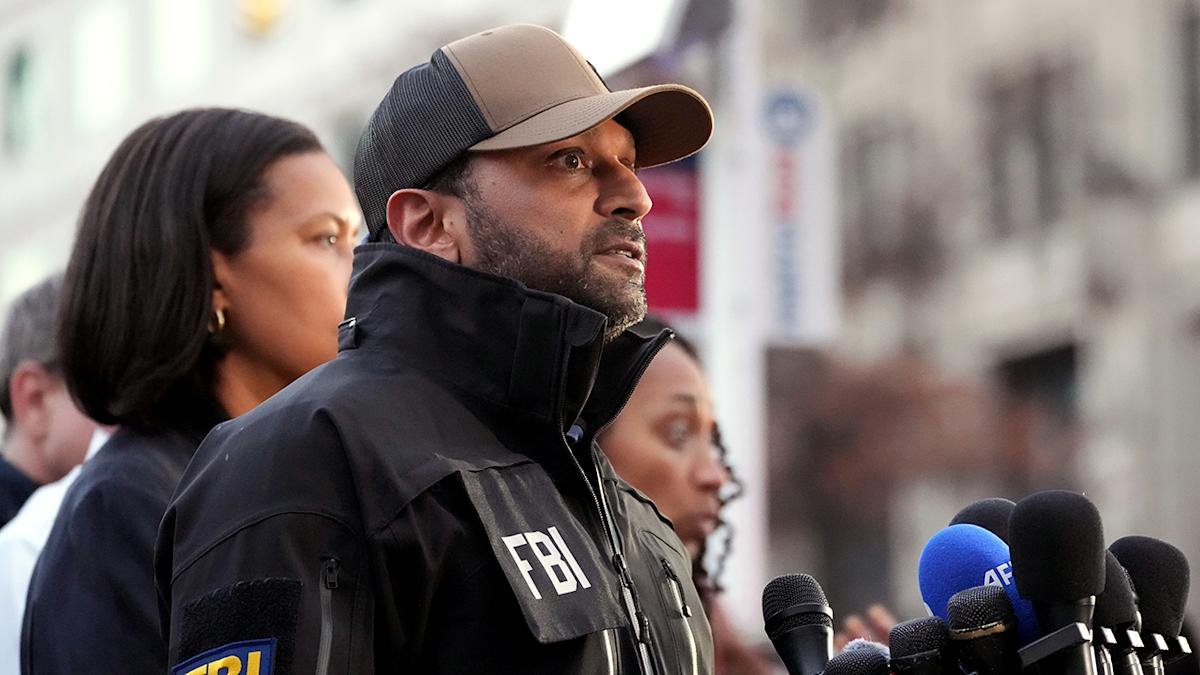
The U.S. Department of Justice (DOJ) is facing growing scrutiny and embarrassment after a string of high-profile failures tied to attempts to prosecute critics of President Donald Trump. What was meant to project strength and accountability has instead exposed deep cracks in federal prosecution strategy, according to legal experts and former prosecutors.
In a sequence of setbacks rarely seen in modern federal law enforcement, the DOJ has suffered dismissed indictments, blocked evidence, and, most strikingly, two federal grand juries refusing to indict one of its key targets — New York Attorney General Letitia James.
The most damaging blow came on December 11, when a second grand jury declined to issue charges against James, just days after another grand jury rejected the same effort. Her attorney, Abbe Lowell, called the outcome “unprecedented,” a sentiment echoed by multiple former federal prosecutors.

Earlier indictments against both James and former FBI Director James Comey were thrown out after a federal judge ruled that the special prosecutor who brought the cases, Lindsey Halligan, had been unlawfully appointed. Adding to the DOJ’s woes, a judge also blocked prosecutors from using key evidence against Comey, citing possible constitutional violations.
“This is an embarrassment,” said Neama Rahmani, a former federal prosecutor. “The last thing you want to be as a prosecutor is to be on the defensive — and that’s exactly what’s happening here.”
Trump’s Longstanding Vendettas
Trump’s hostility toward both Comey and James dates back years. He fired Comey in 2017 while the FBI was investigating potential links between Trump’s 2016 campaign and Russia. James later sued Trump in 2022 for civil fraud related to his real estate business, a case that deeply angered the former president.
In a September 20 social media post, Trump openly called for the prosecution of Comey, James, and Sen. Adam Schiff of California. While investigations were launched, results have been deeply underwhelming.
An NBC News report revealed that the DOJ’s investigation into Schiff has stalled entirely, with internal probes reportedly underway to examine how the case was mishandled. The DOJ has declined to comment on its performance in these matters.
Loyalty Over Experience
According to multiple reports, career prosecutors — including the interim U.S. attorney for the Eastern District of Virginia — had previously concluded the evidence against James and Comey was too weak to sustain charges. Trump publicly criticized and fired the U.S. attorney, later urging Attorney General Pam Bondi to appoint Lindsey Halligan, his former personal lawyer, despite her lack of prosecutorial experience.
Bondi acted swiftly, and Halligan secured indictments against both Comey and James. But the cases quickly collapsed.
In Comey’s case, Magistrate Judge William Fitzpatrick described a “disturbing pattern of profound investigative missteps,” including possible violations of the Fourth Amendment. Judge Cameron McGowan Currie, a Clinton appointee, ultimately dismissed all charges after ruling Halligan’s appointment unlawful.
“The prosecutions haven’t amounted to much in court,” said Carl Tobias, a law professor at the University of Richmond. “Except to harass them — which may have been the point.”
Grand Jury Rejections: A Rare Humiliation
Perhaps the most humiliating moment for the DOJ came when two separate grand juries rejected efforts to re-indict Letitia James. Legal experts stress how extraordinary this is.
Former federal prosecutor Mitchell Epner said he sought hundreds of indictments in his career and failed only once. “To go before two grand juries in a week and fail both times is humiliating and a repudiation of the prosecution,” he said.
Barbara McQuade, former U.S. attorney under President Barack Obama, was even more blunt:
“When prosecutors are selected based on loyalty rather than experience and integrity, this is the sort of garbage we can expect.”
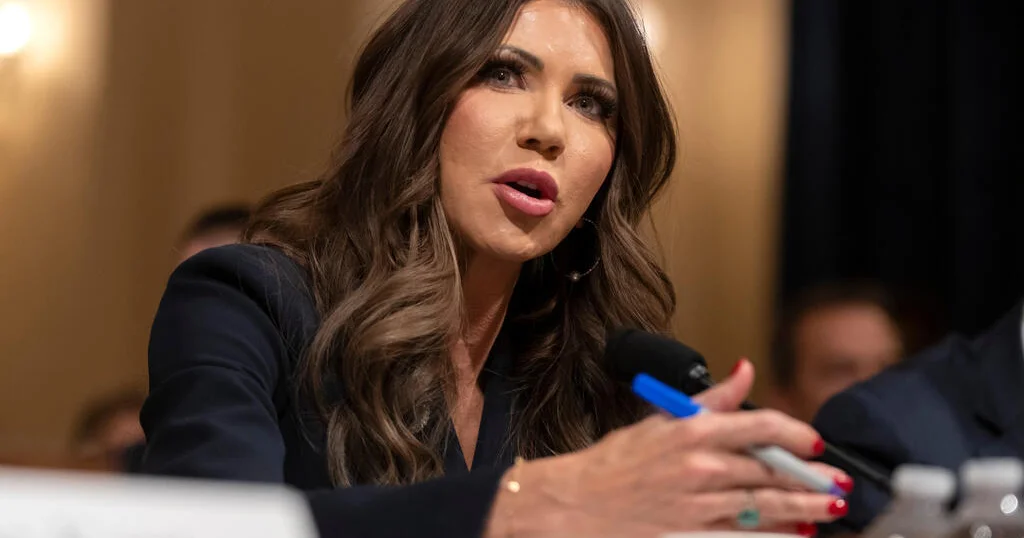
Comey Case Still on Shaky Ground
The DOJ has suggested it may try to re-indict Comey, but significant hurdles remain. A federal judge has temporarily blocked prosecutors from using key evidence obtained during a separate 2017 investigation, ruling it may have been seized unconstitutionally.
Even if that hurdle is cleared, prosecutors face another problem: time. The original indictment was issued just days before the statute of limitations expired. Comey’s defense team argues that because the indictment was void, the government cannot rely on the usual six-month extension for refiling charges.
“The DOJ — and Halligan in particular — have egg on their face,” Rahmani said. “These are massive failures by the Justice Department.”
A Pattern of Collapse
What emerges from this saga is not just a legal defeat, but a broader institutional reckoning. From judicial rebukes to grand jury resistance, the DOJ’s efforts against Trump’s perceived enemies have collapsed under scrutiny.
Instead of delivering accountability, the prosecutions have raised uncomfortable questions about politicization, competence, and abuse of power — questions that now hang heavily over the Justice Department itself.
Politics
Bill Maher Sparks Fiery Clash With Ana Kasparian on Israel as Question About ‘That Dress’ Escalates Debate
“Where would you live in the Middle East… in that dress?” Bill Maher’s question turns tense as Ana Kasparian pushes back on his assumptions.
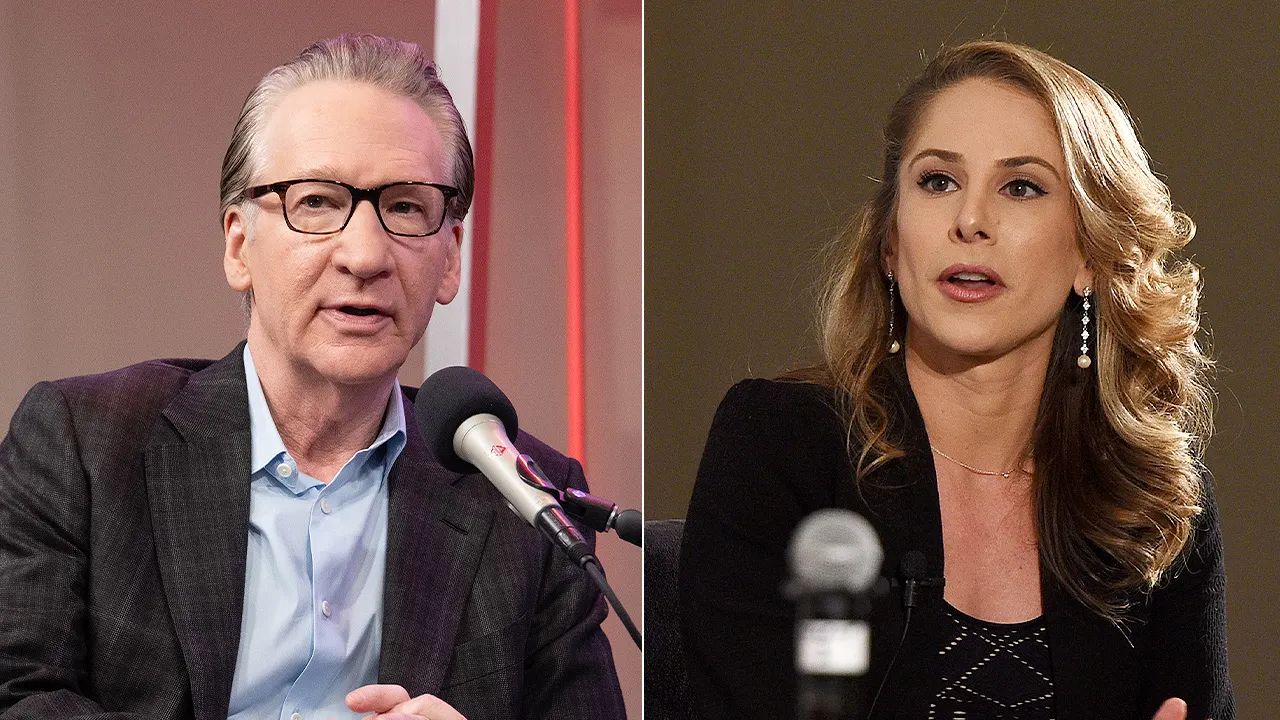
A casual, free-flowing podcast conversation quickly morphed into a heated geopolitical debate when comedian and commentator Bill Maher clashed with Ana Kasparian of The Young Turks during her recent appearance on his show, Club Random.
What began as a typical Maher-style discussion — part politics, part humor, part provocation — took a sharper turn when the topic shifted to the Middle East and whether a Western woman would feel comfortable living there.
Maher, who often stresses that he is not formally aligned with any political organization, posed a hypothetical question to Kasparian:
“Ana, you’ve got to go live in the Middle East… where would you live?”
He began listing countries one by one — Pakistan, Egypt, Jordan, Lebanon, Syria — adding commentary that blended sarcasm with dark humor. Kasparian immediately challenged his characterization of Syria, pointing out that parts of the country are still controlled by extremist groups.
ALSO READ : Kylie Jenner and Timothée Chalamet Steal the Spotlight in Matching Orange Looks at Marty Supreme Premiere
But Maher barreled on, even referencing Yemen “under Houthi rule,” before pivoting to Israel.
“Tel Aviv or the West Bank — Ramallah is wonderful in the fall, it gets lovely,” Maher said. What followed, however, pushed the discussion into far more personal territory.
Looking directly at Kasparian’s outfit, Maher asked:
“What city would you live in? What do you think you’d be comfortable in that dress?”
The remark noticeably shifted the tone of the conversation. Kasparian, known for her direct style on The Young Turks, pushed back firmly, suggesting Maher was oversimplifying deeply complex cultures and ignoring regional differences in laws, norms and women’s rights.
Maher defended his approach, insisting he was speaking about general realities in the region, not making personal judgments. But by this point, the exchange had clearly escalated beyond a casual hypothetical.
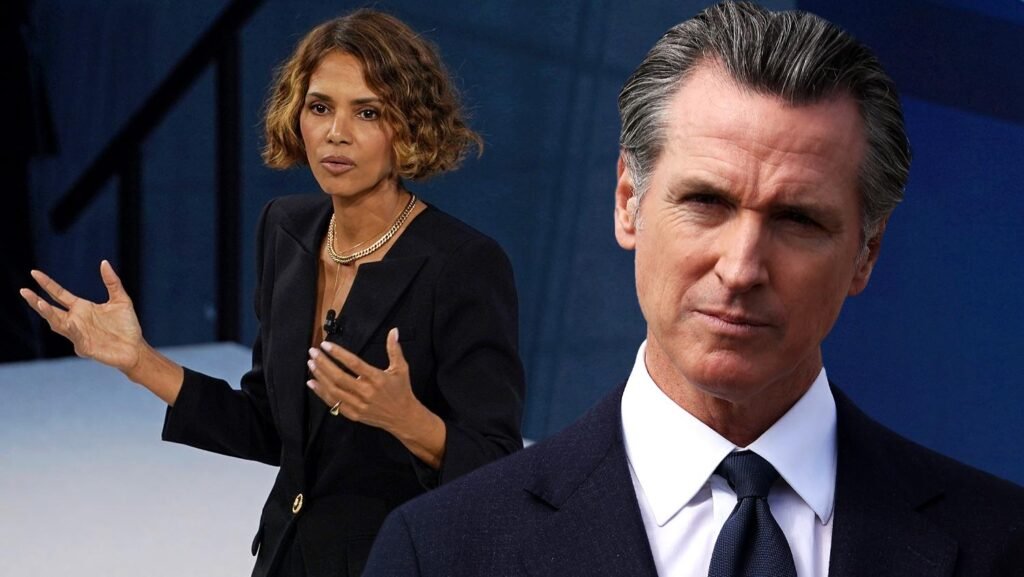
A Debate That Mirrors a Larger Global Divide
The tense moment reflected a broader, ongoing debate playing out across social media and political circles: How does the West talk about the Middle East without flattening its complexity?
Kasparian argued that sweeping generalizations — especially about women’s freedoms — feed into stereotypes that oversimplify lived experiences. Maher countered that refusing to acknowledge differences in legal and cultural realities is equally misleading.
As clips of the exchange circulated online, reactions were predictably polarized. Supporters of Maher praised him for “saying the uncomfortable truth,” while fans of Kasparian applauded her for challenging what they viewed as reductive framing.
Why This Exchange Matters
Both Maher and Kasparian command large online audiences. Maher hosts the long-running HBO show Real Time with Bill Maher, while Kasparian reaches millions through TYT’s digital platforms. Their confrontation — part humor, part philosophy, part geopolitics — reflects how discussions about Israel, women’s rights, and Middle Eastern politics have become flashpoints in Western media.
It also highlights something deeper: When conversations about geopolitics intersect with identity and personal appearance, the tension is almost inevitable.
And on Club Random, tension is something Maher rarely shies away from.
Politics
“If I Can’t Beat Jimmy Kimmel, I Shouldn’t Be President…” Trump Drops Bold Claim Ahead of Hosting Kennedy Center Honors
At a pre-event gathering, President Donald Trump predicted record-breaking ratings — and took a sharp swipe at late-night host Jimmy Kimmel.
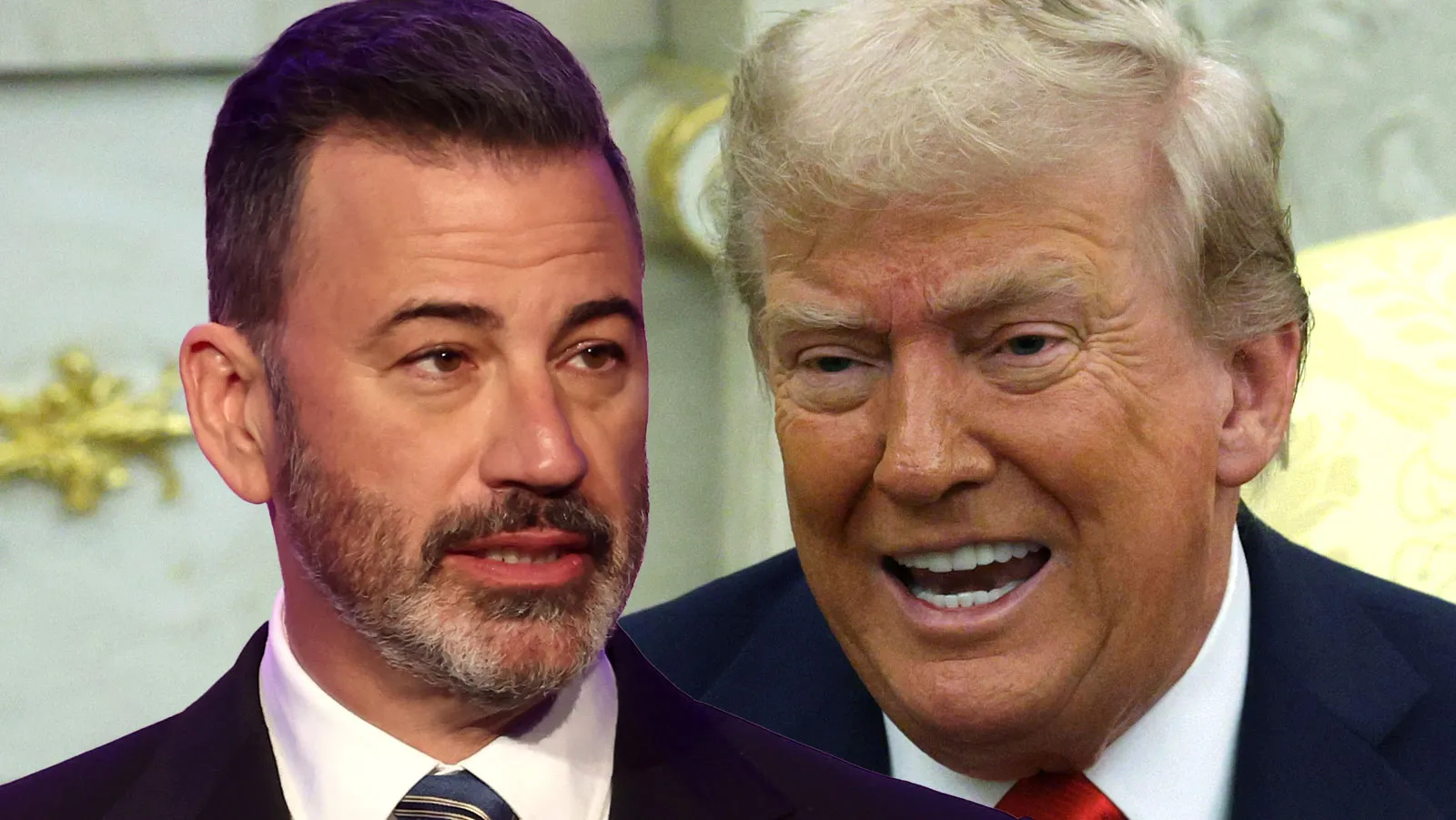
On the eve of hosting the prestigious Kennedy Center Honors, Donald Trump did what he often does best — make headlines before the event even begins. Speaking confidently at a pre-show gathering, Trump made several bold predictions about the upcoming ceremony, including one that instantly went viral.
“I believe this will be the highest-rated show they’ve ever done,” he told attendees, referring to the televised broadcast that will air later this month on CBS and Paramount+. With characteristic bravado, Trump added that while the awards have seen strong viewership in the past, “there’s nothing like what’s gonna happen tomorrow night.”
But it wasn’t his ratings prediction that raised eyebrows — it was his jab at late-night host Jimmy Kimmel.
“I’ve watched some of the people that host,” Trump said with a smirk. “Jimmy Kimmel was horrible. And if I can’t beat out Jimmy Kimmel in terms of talent, then I don’t think I should be president.”
ALSO READ : “Treylon Burks Stuns NFL With Gravity-Defying One-Handed TD… Fans Say ‘This Is His Odell Moment’”
Those in the room reacted with a mixture of laughter and surprise. Trump, who has a long-running feud with several late-night comedians, seemed to relish the moment. Though Kimmel has never actually hosted the Kennedy Center Honors, he did appear in the 2012 ceremony during a tribute to David Letterman — a detail Trump apparently glossed over.
Kimmel, meanwhile, has hosted the Academy Awards, the Primetime Emmys, and fronts his long-running late-night show Jimmy Kimmel Live! Yet Trump’s comment implied he expected comparisons to be inevitable — and not necessarily favorable from the mainstream press.

“We never had a president hosting the awards before,” Trump reminded the audience. “This is a first. I’m sure they’ll give me great reviews, right? They’ll say, ‘He was horrible. He was terrible.’ No, we’ll do fine.”
His tone shifted briefly toward sincerity as he thanked the attendees and spoke about the emotional weight of the upcoming evening.
“This is a special night,” he said. “By the end of these two days, you’re gonna say this is one of the most special days in your life.”
But even in the sentimentality, Trump couldn’t resist one more prediction — that several guests had already told him the day felt life-changing.
With Trump’s boldness, the anticipation around the Honors ceremony is higher than ever — not only for the performances, but to see just how the president’s first hosting attempt will unfold on stage. One thing is certain: the broadcast won’t lack drama, humor, or spectacle.
-

 US News5 days ago
US News5 days ago“She Never Made It Out…” Albany House Fire Claims Woman’s Life as Family Pleads for Help to Bring Her Home
-

 Entertainment1 week ago
Entertainment1 week ago“Detective, Psychologist, Anthropologist?” — Inside the Secret World of Casting Directors Behind ‘F1,’ ‘The Smashing Machine’ and ‘Marty Supreme’
-

 Entertainment1 week ago
Entertainment1 week ago“It Changed My Life…” Sydney Sweeney Breaks Silence on Oscar Buzz for ‘Christy’ and Why the Film’s Dark True Story Still Haunts Her
-
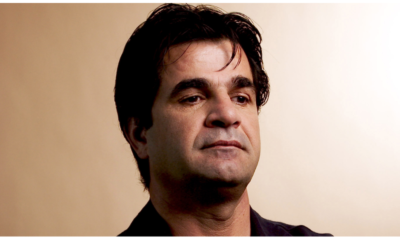
 Entertainment1 week ago
Entertainment1 week ago“A Sentence From a Country He’s Not Even In…” Jafar Panahi Hit With New Prison Term as He Prepares to Attend Gotham Awards
-

 Entertainment4 days ago
Entertainment4 days agoXG Star Cocona Shares a Brave Truth at 20 — “I Was Born Female, But That Label Never Represented Who I Truly Am…”
-

 Entertainment4 days ago
Entertainment4 days agoSamba Schutte Reveals the Surprise Cameo in Pluribus That “Nobody Saw Coming”… and Why John Cena Was Perfect for the Role
-

 Entertainment1 week ago
Entertainment1 week agoLegendary Guitarist Steve Cropper Dies at 84… Tributes Pour In for the Soul Icon Behind ‘Green Onions’ and ‘Soul Man’
-

 Entertainment1 week ago
Entertainment1 week ago‘One Battle After Another’ Stuns the Gotham Awards as Jafar Panahi Delivers Defiant Message Hours After Iran Sentencing


